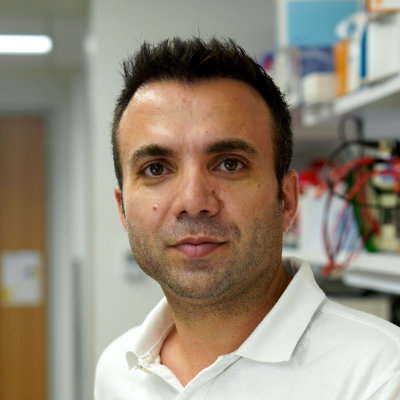Geylani Can
| 2005-2009 | B.S. Department of Molecular Biology and Genetics (Honours degree) | Izmir Institute of Technology |
| 2010-2012 | Master Thesis | Karolinska Institute (supervisor, Boris Zhivotosky) |
| 2012-2018 | Ph.D. in Molecular Biology | University of Cambridge (supervisor, Philip Zegerman) |
| 2019-Present | Postdoctoral fellow | Harvard Medical School (supervisor, Johannes Walter) |
| 2020-2024 | AACR-Cancer Research UK Transatlantic Early Career Development Fellowship |
| 2015 | 3rd place in Cambridge startup weekend, UK |
| 2011 | Best Poster Award in the 1st International Conference on Stem Cell Research and Applications, Turkey |
| 2011 | Sureyya Tahsin Aygun Best Poster Award in the Regenerative Medicine and Cellular Therapy Congress , Turkey |
| 2009 | Travel Grant from European Hematology Association, Germany |
Suski JM, Ratnayeke N, Braun M, Zhang T, Strmiska V, Michowski W, Can G, Simoneau A, Snioch K, Cup M, Sullivan CM, Wu X, Nowacka J, Branigan TB, Pack LR, DeCaprio JA, Geng Y, Zou L, Gygi SP, Walter JC, Meyer T, Sicinski P. CDC7-independent G1/S transition revealed by targeted protein degradation. Nature. 2022 May 4. doi: 10.1038/s41586-022-04698-x.
Johnson, M. C., Can, G., Santos, M. M., Alexander, D., and Zegerman, P. (2021). Checkpoint inhibition of origin firing prevents inappropriate replication outside of S-phase. Elife, 10, e63589.
Can, G., Kleinert, C., Macak, D. and Zegerman, P. (2019). Helicase subunit Cdc45 targets the checkpoint kinase Rad53 to both replication initiation and elongation complexes after fork stalling. Molecular Cell. 73:562-573.
Can, G., Akpinar, B., Baran, Y., et al. (2013). 5-Fluouracil signaling through a calcium-calmodulin dependent pathway is required for p53 activation and apoptosis in colon carcinoma cells.Oncogene. 32(38):4529-38.
Sunay, O. Can, G., Çakır, Z., et al. (2013). Autologous rabbit adipose tissue derived mesenchymal stem cells for the treatment of bone injuries with distraction osteogenesis. Cytotherapy. 15(6): 690-702.
Can, G., Cakir, Z., Kartal, M., et al. (2012). Apoptotic effects of resveratrol, a grape polyphenol, on Imatinib-sensitive and resistant K562 chronic myeloid leukemia. cells.Anticancer Research. 32(7):2673-8.
Ekiz, H.A., Can, G., Baran, Y. (2012). Role of autophagy in the progression and suppression of leukemias. Crit Rev Oncol Hematol. 81(3): 275-85.Can, G., Ekiz, H.A., Baran, Y. (2011). Imatinib induces autophagy through BECLIN-1 and ATG5 genes in chronic myeloid leukemia cells. Hematology. 16(2): 95-9.
Ekiz, H.A., Can, G., Gunduz, U., Baran, Y. (2010). Nilotinib significantly induces apoptosis In Imatinib resistant K562 cells, as effectively as in parental sensitive counterparts. Hematology. 15(1): 33-38.
Hobbies

